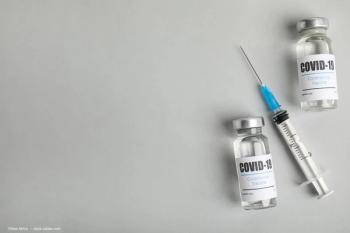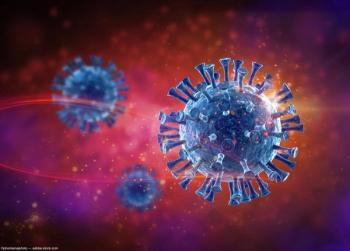
Myocarditis/myopericarditis associated with COVID-19 vaccinations
A team of Danish investigators have found an increased link between the Moderna vaccination and development of myocarditis or myopericarditis. Meanwhile, the Pfizer vaccination was found to have a significantly increased risk of cardiac adverse effects only among women.
Danish investigators reported a significantly increased association between the mRNA-1273 vaccination (Moderna) and development of myocarditis or myopericarditis in a Danish population and this increased risk was especially seen in individuals in the age range of 12 to 39 years. The BNT162b2 (Pfizer-BioNTech) vaccination was found to have a significantly increased risk of cardiac adverse effects only among women.
Despite these associations the absolute rate of myocarditis or myopericarditis following a SARS-CoV-2 mRNA vaccination is low, even in younger age groups, according to Anders Husby, MD, PhD, and colleagues from the Department of Epidemiology and Biostatistics at Imperial College London, London, UK, and the Department of Epidemiology Research, Statens Serum Institute, Copenhagen.
These conclusions were based on a population-based cohort study1 conducted in Denmark that included almost 5 million people age 12 year and older. The course ran from October 1, 2020, to October 5, 2021.
The investigators reported that a total of 269 participants in the study population developed myocarditis or myopericarditis, and of these 108 (40%) were 12 to 39 years of age and 196 (73%) were male.
Pfizer vaccine
Almost 3.5 million people had received the BNT162b2 vaccine, and of these 48 developed myocarditis or myopericarditis within 28 days post-vaccination compared with the unvaccinated individuals for an absolute rate of 1.4/100,000 vaccinated individuals within 28 days of vaccination.
Considering gender, the adjusted hazard ratios among females only and males only were 3.73 and 0.82, respectively, with corresponding absolute rates of 1.3/ and 1.5/100,000 vaccinated individuals within 28 days of vaccination, respectively. The adjusted hazard ratio among the 12- to 39-year-olds was 1.48 and the absolute rate was 1.6/100,000 vaccinated individuals within 28 days of vaccination.
Moderna vaccine
Almost a half million individuals received the mRNA-1273 vaccine, and of those 21 developed myocarditis or myopericarditis within 28 days from vaccination date (adjusted hazard ratio 3.92). The absolute rate was 4.2/100,000 vaccinated individuals within 28 days of vaccination. The adjusted hazard ratios among women only and men only were 6.33 and 3.22, respectively, with corresponding absolute rates of 2.0/ and 6.3/100,000 vaccinated individuals within 28 days of vaccination, respectively. The adjusted hazard ratio among the 12- to 39-year-olds was 5.24 and the absolute rate was 5.7/100,000 vaccinated individuals within 28 days of vaccination, the investigators reported.
While physicians should be aware of the risk, the Danish investigators emphasized, “The benefits of SARS-CoV-2 mRNA vaccination should be considered when interpreting these findings. Larger multinational studies are needed to further investigate the risks of myocarditis or myopericarditis after vaccination within smaller subgroups.”
Reference
Husby A, Hansen JV, Fosbøl E, et al. SARS-CoV-2 vaccination and myocarditis or myopericarditis: population based cohort study. BMJ 2021;375:e068665; doi:
Newsletter
Don’t miss out—get Ophthalmology Times updates on the latest clinical advancements and expert interviews, straight to your inbox.





























